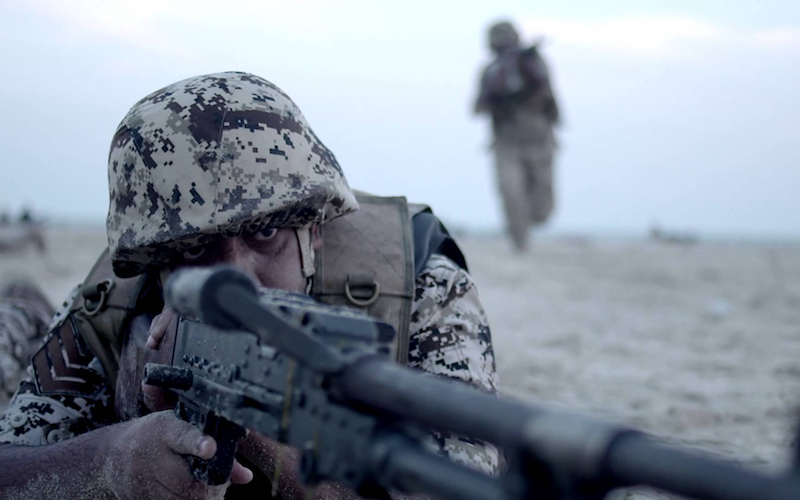
The Peninsula Shield Force: The Gulf Cooperation Council’s Vestigial Organ
No serious diplomatic practitioner or academic can overlook the importance of the Gulf Cooperation Council. It forms the most reactive and potent alliance of Sunni Arab countries and exerts its political consensus. It also provides the structural framework for consensus-building and mediation, but its military organ, the Peninsula Shield Force, is and remains to be a rudimentary and feeble mechanism for defense purposes. The Peninsula Shield Force is a collective military mechanism that bears no effect on regional or international affairs. This fundamental weakness in the Gulf Cooperation Council has been a major impediment to overcoming Middle Eastern challenges.
As early as 1991 when Kuwait was invaded by Iraq, the Peninsula Shield Force played no role in the war to stop Saddam Hussein’s territorial ambitions. In essence, the Peninsula Shield Force missed a major opportunity to make its imprint on the international order. The United States acted in its stead with a 91-country coalition sponsored by the United Nations. The Peninsula Shield Force remained on the sidelines and never forged any ties to NATO, which would have elevated its status in international security relations. The Peninsula Shield Force collectively remained a zero factor in world affairs, which was the result of the Gulf Cooperation Council focusing on political and economic affairs. International defense and security was not a priority for the member countries.
Twelve years had passed since the Peninsula Shield Force’s non-performance in the Persian Gulf War when the United States invaded Iraq and deposed Saddam Hussein. The Peninsula Shield Force continued its “zero factor behavior” by having no role in any stage of the war. The Peninsula Shield Force lacks defense equipment, soldiers, funding, and security objectives because the Gulf Cooperation Council member countries place no emphasis on its importance. Incidentally, the Peninsula Shield Force made no effort to mediate or monitor the Iran-Iraq skirmishes or the ensuing Iranian aggression in the form of its nuclear ambitions. Even Iran, the Shia power in the region could not motivate the Gulf Cooperation Council to implement structural and organizational reforms to resurrect the failing Peninsula Shield Force.
Arab leaders concentrate on the Organization of Petroleum Exporting Countries, the Arab League, and the Gulf Cooperation Council, but not a collective military organization that can be the solution to the region’s fissures. The Gulf Cooperation Council member countries are shortsighted and do not believe in the beneficial prospects of creating and commanding a united military force that will embolden the Arab consensus against aggressors and violent situations plaguing Middle Eastern affairs. The Arab countries that are participants in liberal internationalist institutions must shift the political paradigm in the region to include placing importance on military and security cooperation.
Oil, petroleum, Arab unity, and Sunni political allegiances are powerful forces in the Middle East. Their importance must not be neglected, but a well-developed collective military organization in the region would provide a boost to attaining peace and prosperity in the region. The Arab Spring would have been a thoroughly stable phenomenon if the Peninsula Shield Force possessed capabilities for providing peacekeeping in exigent circumstances. In addition to this, the current presence of Al Qaeda, ISIS, and other terrorist and paramilitary organizations requires a military force with the ability and objective to decimate them. The Peninsula Shield Force is currently the Middle East’s vestigial military organ. It was created with grand intentions, but the Gulf Cooperation Council member states never provided it with what it needed in order to thrive. A reevaluation of this decision would be wise for anyone who wishes the Middle East’s turmoil become confined to the history books.
